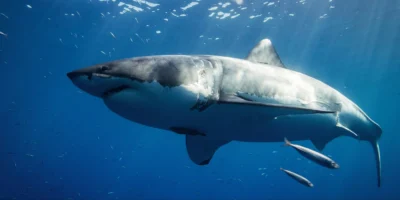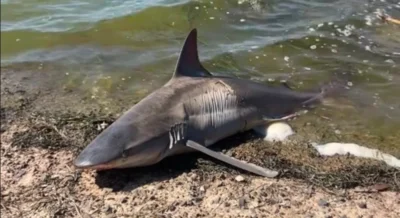A new study provides the clearest evidence to date that dusky sharks (Carcharhinus obscurus) prey on gray seals off Nantucket. Researchers from the Atlantic White Shark Conservancy, the New England Aquarium, and the Massachusetts Division of Marine Fisheries have, for the first time, documented an aerial image showing the killing and consumption of a seal – a finding that expands the understanding of the species and its role in Massachusetts’ coastal ecosystem.
From assumption to confirmation
As early as July 2023, photos and videos of seal carcasses circulated near Great Point. At first, the attackers were thought to be white sharks – later analyses identified them as dusky sharks. Previous evidence (such as a single stomach finding from South Africa) was considered a scavenging scenario, not active hunting behavior. The newly published study in Environmental Biology of Fishes confirms: dusky sharks actively hunt seals.
"These observations change our view of the feeding ecology of the dusky shark – and of the interactions between sharks and seals off Massachusetts," says lead author Megan Winton (AWSC).
Ecological return of old relationships
The researchers do not assume this is a new behavior. Rather, the findings suggest that with the recovery of shark and seal populations, predator-prey relationships that had been interrupted for decades are returning. When the protection of marine mammals and sharks took hold in the 1990s, populations began to grow – science is now recording behavioral patterns that were likely common historically but could hardly be observed after the population collapse.
"It is quite possible that this relationship was historically significant – and that we will see more such ecological surprises in the future," says Winton.
Importance for management and safety
The dusky shark is considered globally threatened; populations declined severely in the 20th century but now show signs of recovery. The findings provide starting points for conservation and coastal management: when predatory sharks return to historic habitats, it affects food chains, fisheries, and recreational swimming. The researchers also emphasize the value of citizen science: it was public observations that first drew attention to the hunting scenes.
"The return of recovered shark populations can significantly shape coastal ecosystems – with consequences for wildlife management and public safety," says co-author Gregory Skomal (MA DMF).
All in all, the study strengthens the evidence for effective conservation policies – and shows how important continuous monitoring, education, and public involvement are.




